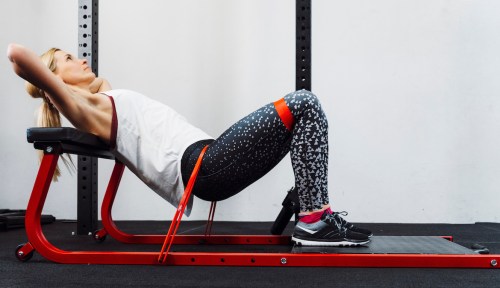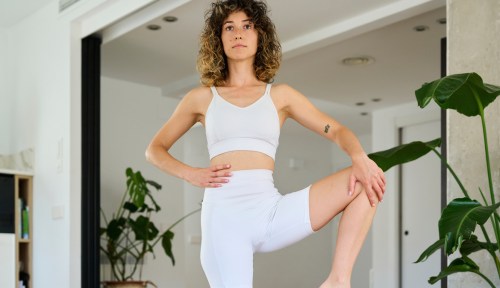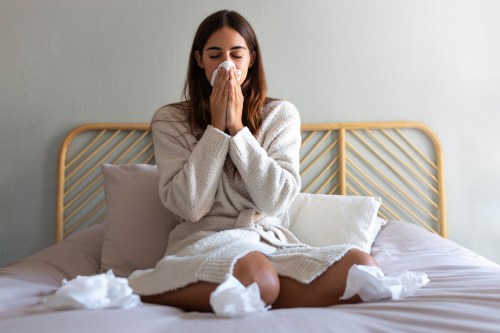In a valiant effort to build healthy habits, we often reduce elements of our lifestyle to their formulaic equivalents—and the widely accepted wellness goal of achieving 10,000 steps each day is a prime example. While no health expert will refute the longevity-boosting benefits of walking a substantial amount daily, the statistic itself is mostly arbitrary: It was developed by a Japanese company in the 1960s as a marketing tool for its pedometer, and is not based on definitive research. In fact, a 10,000-step-count goal doesn’t account for the physiological differences between people and the other physical activities that might happen in a day, not to mention it can create a less-than-healthy preoccupation with achieving that goal at any cost.
Experts in This Article
physical activity epidemiologist and kinesiologist
clinical-academic physiotherapist and senior lecturer at King’s College in London
This overly hyped affinity for tracking lifestyle in terms of particular numbers—eight hours of sleep a night, eight glasses of water a day, and yes, 10,000 steps per day—is the topic of the most recent episode of The Well+Good Podcast. During the conversation, Brendon Stubbs, PhD, a physiotherapist and senior lecturer at King’s College, and Amanda Paluch, PhD, a kinesiologist and assistant professor at the University of Massachusetts Amherst School of Public Health & Health Sciences, share a few convincing reasons for loosening up on that step-count goal—and considering overall “minutes moved” per day as an alternative health metric.
Listen to the full episode here:
Where step count falls short as an indicator of a healthy lifestyle:
It’s worth reiterating once more that the 10,000-step number itself may not hold any valuable significance—particularly when you consider the age of who’s doing the stepping. In the episode, Dr. Paluch cites a 2019 study of almost 17,000 women averaging 72 years old as evidence that we may require fewer steps as we age; the researchers found that the beneficial health outcome from increased activity tapered off at about 7,500 steps for this group.
“10,000 steps isn’t going to be representative of every individual and will vary depending on the population.” —Amanda Paluch, PhD
By contrast, however, a 2020 study that tracked the steps of almost 5,000 people with an average age of 56 for 10 years found significantly lower mortality among the group that took 12,000 steps compared to the 8,000- and 4,000-step groups, suggesting that we may, in fact, benefit from even more steps in young or middle age. “That’s all to say that 10,000 steps isn’t going to be representative of every individual and will vary depending on the population,” says Dr. Paluch.
Given the irrelevance of the exact number, the experts agree that worrying about it may do you more harm than good. “In my experience, I’ve known people to get obsessed about the number,” says Dr. Stubbs. “For example, they’ll get worried if they get 9,990 steps and think they need to go out and complete the extra 10. But does the research say that if you do 9,990 steps, you’re going to have a rubbish day or die sooner? Absolutely not.”

How the ‘minutes moved’ health metric can fill the gaps created by step count:
Because the step-count metric is essentially a proxy for being active—which we know can help lower mortality rate—a measure of minutes moved overall may be a more accurate health metric. “The World Health Organization guidelines recommend we do 150 to 300 minutes of moderate or vigorous physical activity over the course of each week,” says Dr. Stubbs. “That would be any type of movement where you’re becoming slightly out of breath.”
Following these terms, you can clock that movement in whatever way feels best for you—not just with steps but with exercise or even any household activity that requires you not to be sedentary. “Sometimes, it’s a really busy day and I have a really messy house,” says Dr. Paluch, “so I just book it around the house with my vacuum for 20 minutes and that feels like a win,” she says, “and other days, I’m moving because I’m running around with my kids.”
With any kind of numeric fitness tracking (steps or minutes moved, included), consistency is more important than the exact number—and some amount of movement is always better than none. As evidence, Dr. Stubbs cites a small 2018 Japanese study of 36 people finding that just 10 minutes of gentle cycling resulted in improved memory function based on brain scans of the participants and a pattern-recognition test.
We also know that even just standing up throughout the day can have a profound effect on overall health, which is why Dr. Paluch suggests building up exercise momentum in small intervals. “Doing a little bit one day will make it easier to do a little bit more the next,” she says. And the more seamlessly movement fits into your regular routine, the more likely you are to form a habit—which is the key to reaping the long-term wellness rewards of an active lifestyle, after all.
Oh hi! You look like someone who loves free workouts, discounts for cutting-edge wellness brands, and exclusive Well+Good content. Sign up for Well+, our online community of wellness insiders, and unlock your rewards instantly.
Sign Up for Our Daily Newsletter
Get all the latest in wellness, trends, food, fitness, beauty, and more delivered right to your inbox.
Got it, you've been added to our email list.










